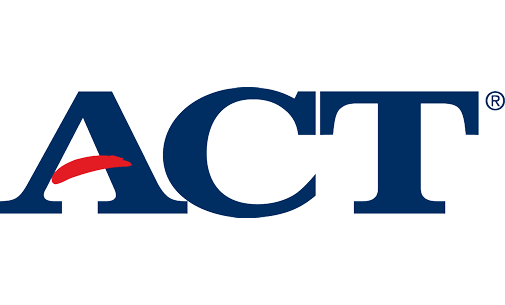The ACT should be abandoned

The ACT is one of the most popular standardized tests in the world. Provided by ACT inc.
October 26, 2021
In every motivational speech that has ever been written, it is said that one moment does not define you, so why does taking the ACT define the rest of your life? Why do schools put so much weight on a test that is not a true representation of a student’s knowledge?
Some prestigious universities only look at a student’s ACT score before batting away their application. One score does not define a person and only viewing a person as their score seems like an old practice in a modern world.
The content on the ACT itself is problematic by itself. The questions on the English section alone can be contested greatly.
The ACT wants the most concise answer on this portion, but in the real world those would not be the only correct answers. The tester has to guess what the creators of the test would pick, not what is the most correct.
This is why most of the guides seen on the internet say things like, “how to beat the ACT” and are more about guessing strategies than how to answer questions correctly on the test.
Colleges want the best students, but if they look at ACT scores as their main metric, then they could be missing some of the best students. Studies like this one by Douglass Detterman have proven that tests like the ACT and SAT are actually just IQ tests in disguise.
This directly contradicts what you find on the ACT’s own website: “The ACT is not an aptitude or an IQ test. Questions are directly related to what students have learned in high school courses.” This raises the issue that IQ tests are not used in college admissions specifically because they are not good measures of academic excellence.
If we use ACT and SAT scores, we might as well be using IQ scores since they have been proven to be one and the same. Someone with a very high IQ could tell you every single thing about a subject, but when you send them into the real world, they might not be able to adapt to certain social situations. This is a major part of college and essentially a necessity for success.
Not only are the scores inaccurate to true intelligence, but the ACT allows for there to be bias in terms of financial status. To prove that you are intelligent, you must pay $60 to take the test. For testers with more financially able parents, taking the test multiple times is possible, but for testers that do not have money to spare, the test is often a one-time occurrence.
This can often make students feel pressure when it comes to taking the test. This study found that there is a positive correlation between stress and standardized tests. This is yet another reason that we cannot rely solely on ACT scores. Stressed students do not tend to perform at their peak; therefore, their scores may not be accurate indications of their abilities.
This also led to things like the college admissions scandal where parents paid money to have their kids’ ACT scores illegally raised and their college applications and achievements falsified. This article by the New York Times explains more about it and what colleges do to combat situations like these.
One option is that colleges allow test scores to be optional. This sounds like a great idea until you do the research and find out that it did almost nothing to raise the number of underprivileged and diverse students on campus. You can find this information here.
The ACT claims that they are “inclusive, transformational, and holistic,” but all of these claims can be debunked with the smallest of research and common sense. The steep prices of their tests prove that they are not inclusive. They say that they are transformational, but the only thing that has changed in the past years is how the scores are reported, not the content of the test.
Lastly, they claim they are holistic (looking at the whole instead of the parts), specifically that they “assess and appreciate each person’s unique traits and skills, to help navigate toward college and career success.” Do scores in four categories really show the whole value of a person? What about things like technical skills? The ACT does not care about how unique a person is; they only care about $60 and a number from one to thirty-six.
The ACT would argue that they do not care about money since they are a non-profit, but if you look at the tax documents here, then you would see that the CEO of the company made $817,092 and $257,305 in “other compensation” in the year 2017.
When calculated out, this means that the CEO makes $517 dollars an hour. That is $9 a minute. In what way does this make the ACT a non-profit?
If the company even took 10% of that money and put it towards helping the underprivileged take the test more than once, it would pay for almost 1,400 tests. What brilliant individuals are colleges missing out on just because the test can’t be paid for?
All of these points prove that the ACT should be abandoned as the most important part of college admissions. The ACT should no longer be the authority on who does or does not get into college.



